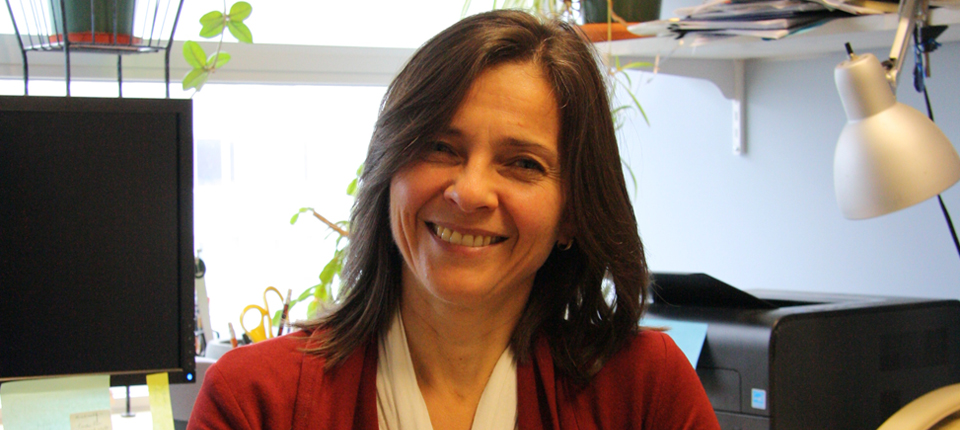How can we help individuals, communities, researchers and policy makers work together to promote a fairer society?
Michaela Hynie has a wide-ranging program of community engaged research – in Toronto, and around the world. Her work ranges from broader issues such as newcomers’ access to care, the reintegration of prisoners into society, and access to health care for hospital patients without health insurance, to more specific issues such as understanding how to promote the well-being of nail salon workers. The common thread through Hynie’s research is using social inclusion to make people’s lives better in collaboration with community partners, policymakers, and activist groups.
Inspiration
What happens to me and you is only partly under our own control. Many of our opportunities are shaped by larger systems that support or exclude us in ways we don’t always understand. The injustice of this is what drives me. I want to work towards changes that transform our society and communities. A fairer society is better for everyone.
Impact
I study people in communities, and the systems that they live in and that shape the way they live. Working at all these levels is the only way to make lasting change.
In the York Institute for Health Research there is tremendous support for the kind of work we do, and many opportunities for international collaboration across disciplines. For example, in a project on maternal mental health in 30 communities in Rwanda, we have brought researchers, government ministries, community leaders, and health care providers together to build support for new mothers. By working collaboratively to promote and raise awareness of maternal mental health across multiple sectors, we not only test the effectiveness of this intervention; we are able to change policies and practices in the region in ways that benefit the community as a whole, by ensuring that future generations of new mothers and their families receive the support they need.
In all of our work, the first outcome we always consider is: how is this research going to benefit this population? Locally, I work with partners in immigrant and refugee communities. We collaborate with the community in identifying issues to address, and how they may be affected by different supports or interventions. Communities should benefit in several ways. They benefit from getting answers to their questions, or working with us to address their issues. Where possible, they also benefit more immediately when we hire researchers from within the community. This ensures that the research is relevant, appropriate and grounded, while providing employment, work experience, and training for community members.
Highlight
I believe that research has tremendous potential to change lives, but only if we work together. This means working on complex social issues using research partnerships that bring different sectors together. For this reason, my biggest accomplishment is my undergraduate community-based research course. Students learn the power of collaborative research to address social issues by working in partnership with community organizations on issues the organizations have identified. These undergraduate projects can have tremendous impact; their research has been used in the development of York Region’s language and interpretation policies; in determining how to improve services in community health centres, and to evaluate Mindfulness programs in schools.
What's Next?
Recently, I have been interested in environmental change, and how to bring communities, policy makers and researchers together to understand, and respond to, changes in their environment in ways that can reduce social inequities. I’m interested in how we understand what is happening in these communities, and how to bring these different understandings together so that they can work together on solutions. It is imperative to close the gaps between us if we are going to respond to environmental change in ways that promote a fairer society.


